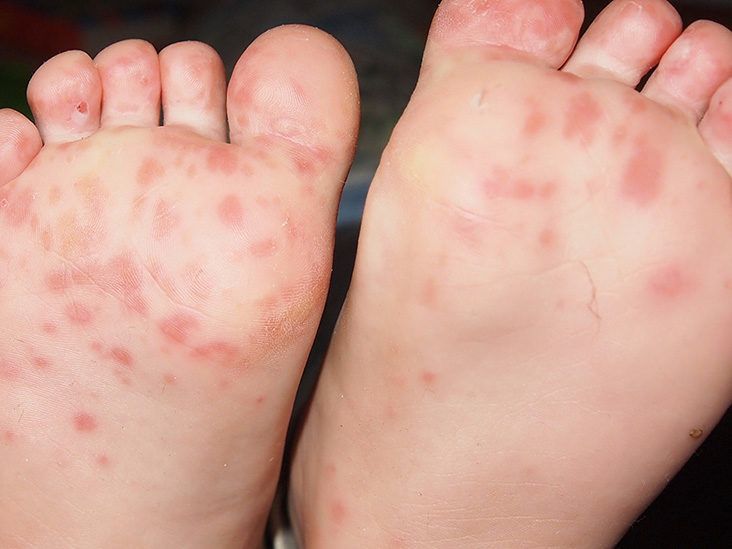
Cases of Hand, Foot & Mouth Disease on the rise - VI Epidemiologist
As such, the Ministry of Health and Social Development is encouraging parents to remain vigilant as hand foot and mouth disease is on the rise in the Territory.
 According to Ms. Harmony Brewley-Massiah,
the disease is spread from person to person through coughing, sneezing,
and contact with infected faces through changing a diaper, or touching
surfaces or objects which have been contaminated with the virus.
According to Ms. Harmony Brewley-Massiah,
the disease is spread from person to person through coughing, sneezing,
and contact with infected faces through changing a diaper, or touching
surfaces or objects which have been contaminated with the virus.Persons urged to beware of virus
A release from the Ministry has warned that HFMD, is a generally mild disease caused by a group of viruses called Coxsackie Viruses. It mainly affects infants and young children (less than five years old) but can also occur in older children and adults.
According to Ms. Brewley-Massiah, the disease is spread from person to person through coughing, sneezing, and contact with infected faces through changing a diaper, or touching surfaces or objects which have been contaminated with the virus.
“Symptoms usually begin with a fever, sore throat, reduced appetite, and a general feeling of being unwell,” the National Epidemiologist said.
Ms. Brewley-Massiah added that within a day or two after the first symptoms, a rash and bumps may appear on the soles of the feet, palms of the hands, and inside the mouth.
“A rash may also develop on the elbows, knees, and buttocks. The bumps may blister but do not cause itching,” she said.
Persons without any symptoms and can still pass the virus on to others and the illness is usually mild and persons usually recover from the disease between seven to ten days.
 Ms. Harmony Brewley-Massiah added that
within a day or two after the first symptoms, a rash and bumps may
appear on the soles of the feet, palms of the hands, and inside the
mouth.
Ms. Harmony Brewley-Massiah added that
within a day or two after the first symptoms, a rash and bumps may
appear on the soles of the feet, palms of the hands, and inside the
mouth. Daycares must take caution - Brewley-Massiah
“We need daycare institutions to adhere to proper hygiene and sanitation practices and sick children should be kept at home until they are well to limit spread of the infection in schools and daycare institutions,” Ms. Massiah stated.
To reduce the risk of getting infected with HFMD and prevent the spread of the virus, parents and care workers are encouraged to wash hands often with soap and water, especially after changing diapers. Adults should help young children do the same.
The Ministry said there is no specific treatment for HFMD, but symptoms can be treated to provide relief. Acetaminophen or ibuprofen can be used to manage fever and pain. Persons with the virus need to drink enough fluids to prevent dehydration. Cold liquids are usually preferable. Spicy and acidic foods should be avoided as they may cause discomfort.
Persons should also avoid touching their eyes, nose, and mouth with unwashed hands. Disinfect surfaces and objects, such as toys and doorknobs. Persons should also avoid close contact such as hugging, kissing, and sharing eating utensils with persons who have HFMD.










